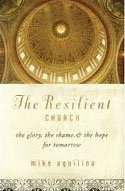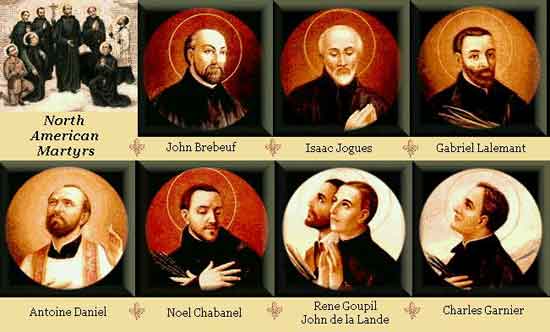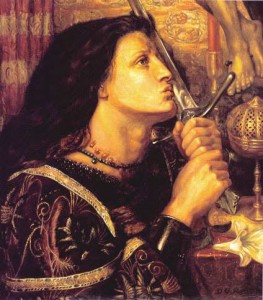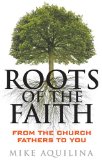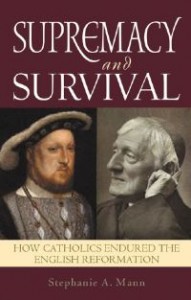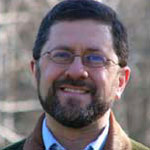 Episode 8– The Conversion of the New World
Episode 8– The Conversion of the New World
The Resilient Church with Mike Aquilina, offers a fascinating look at the trials and triumphs of the Catholic Church over the past two thousand years. Fast-paced sketches of critical periods in church history give readers perspective on the challenges faced by the church today. Mike Aquilina does not shrink from the realities of the past, including badly behaved leaders and those who betrayed the Lord. Yet he also leaves us all with well-founded hope for the future: God remains faithful in every circumstance and fulfills his promise to remain with his church always. Hosted by Kris McGregor
Also visit Mike’s “Discerning Hearts†page for more audio downloads and information!
Tags: catholic, catholic church, catholic podcast, catholic prayer, cathollc spirituality, church history, mike aquilina, Resilient Church, st. paul center for biblical theo
This entry was posted on Monday, October 31st, 2011 at 4:01 pm
You can follow any responses to this entry through the RSS 2.0 feed.
Blessed John Paul II reflection on the NMA:
The North American Martyrs, then, gave up their lives for the sake of the Gospel – in order to bring the faith to the native people whom they served. In fact, we are told that their faith was so strong that they yearned and prayed for the grace of martyrdom. Let us recall for a moment these heroic saints who are honoured in this place and who have left us a precious heritage.
Six of them were Jesuit priests from France: Jean de Brébeuf, Isaac Jogues, Gabriel Lalemant, Antoine Daniel, Charles Garnier and Noël Chabanel. Fired with love for Christ and inspired by Saint Ignatius of Loyola, Saint Francis Xavier and other great saints of the Society of Jesus, these priests came to the New World to proclaim the Gospel of Jesus Christ to the native peoples of this land. And they persevered to the end despite difficulties of every sort.
Two lay brothers were part of the missionary group: René Goupil and Jean de la Lande. With no less courage and fervour, they assisted the priests in their labours, showed great compassion and care for the Indians, and, laying down their lives, won for themselves the martyr’s crown.
And as these missionaries laid down their lives, they looked forward to a day when the native people would enjoy full maturity and exercise leadership in their Church. St. John de Brébeuf dreamed of a Church fully Catholic and fully Huron as well.
…
And today we are grateful for the part that the native peoples play, not only in the multicultural fabric of Canadian society, but in the life of the Catholic Church. Christ himself is incarnate in his Body, the Church. And through her action, the Church desires to assist all people “to bring forth from their own living tradition original expressions of Christian life, celebration and thought” (Ioannis Pauli PP. II, Catchesi Tradendae, 53).
Thus the one faith is expressed in different ways. There can be no question of adulterating the word of God or of emptying the Cross of its power, but rather of Christ animating the very centre of all culture. Thus, not only is Christianity relevant to the Indian people, but Christ, in the members of his Body, is himself Indian.
And the revival of Indian culture will be a revival of those true values which they have inherited and which are purified and ennobled by the Revelation of Jesus Christ. Through his Gospel Christ confirms the native peoples in their belief in God, their awareness of his presence, their ability to discover him in creation, their dependence on him, their desire to worship him, their sense of gratitude for the land, their responsible stewardship of the earth, their reverence for all his great works, their respect for their elders. The world needs to see these values – and so many more that they possess – pursued in the life of the community and made incarnate in a whole people.
Finally, it is in the Eucharistic sacrifice that Christ, joined with his members, offers up to his Father all that makes up their lives and cultures. In his Sacrifice he consolidates all his people in the unity of his Church and calls us all to reconciliation and peace.
As we go forward, let us commend ourselves to the intercession of the North American Martyrs, to Blessed Kateri Tekakwitha, Saint Joseph, Patron of Canada, and all the Saints, together with Mary the Queen of Saints. And in union with the whole Church – in the richness of her diversity and in the power of her unity – let us all proclaim by the witness of our own lives that “neither death nor life… nor any created thing, can ever come between us and the love of God made visible in Christ Jesus our Lord” (Rom. 8, 38-39).
Tags: catholic, catholic church, catholic podcast, catholic prayer, cathollc spirituality, jesuits, martyr, martyrdom, native peoples, The North American Martyrs
This entry was posted on Wednesday, October 19th, 2011 at 10:12 am
You can follow any responses to this entry through the RSS 2.0 feed.
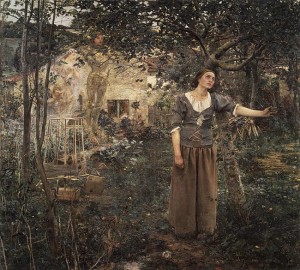 ommitment to sacramental life and to prayer: daily participation in Mass, frequent Confession and Communion and long periods of silent prayer before the Crucified One or the image of Our Lady. The young French peasant girl’s compassion and dedication in the face of her people’s suffering were intensified by her mystical relationship with God. One of the most original aspects of this young woman’s holiness was precisely this link between mystical experience and political mission. The years of her hidden life and her interior development were followed by the brief but intense two years of her public life: a year of action and a year of passion. At the beginning of 1429, Joan began her work of liberation. The many witnesses show us this young woman who was only 17 years old as a very strong and determined person, able to convince people who felt insecure and discouraged. Overcoming all obstacles, she met the Dauphin of France, the future King Charles VII, who subjected her to an examination in Poitiers by some theologians of the university. Their opinion was positive: they saw in her nothing evil, only a good Christian. On 22 March 1429 Joan dictated an important letter to the King of England and to his men at arms who were besieging the city of Orléans (ibid., pp. 221-222). Hers was a true proposal of peace in justice between the two Christian peoples in light of the Name of Jesus and Mary, but it was rejected and Joan had to gird herself to fight for the city’s liberation which took place on 8 May. The other culminating moment of her political action was the coronation of King Charles VII in Rheims on 17 July 1429. For a whole year, Joan lived with the soldiers, carrying out among them a true mission of evangelization. Many of them testified to her goodness, her courage and her extraordinary purity. She was called by all and by herself “La pucelle†(“the Maidâ€), that is, virgin. Joan’s passion began on 23 May 1430, when she fell into enemy hands and was taken prisoner. On 23 December she was led to the city of Rouen. There the long and dramatic Trial of Condemnation took place, that began in February 1431 and ended on 30 May with her being burned at the stake.
ommitment to sacramental life and to prayer: daily participation in Mass, frequent Confession and Communion and long periods of silent prayer before the Crucified One or the image of Our Lady. The young French peasant girl’s compassion and dedication in the face of her people’s suffering were intensified by her mystical relationship with God. One of the most original aspects of this young woman’s holiness was precisely this link between mystical experience and political mission. The years of her hidden life and her interior development were followed by the brief but intense two years of her public life: a year of action and a year of passion. At the beginning of 1429, Joan began her work of liberation. The many witnesses show us this young woman who was only 17 years old as a very strong and determined person, able to convince people who felt insecure and discouraged. Overcoming all obstacles, she met the Dauphin of France, the future King Charles VII, who subjected her to an examination in Poitiers by some theologians of the university. Their opinion was positive: they saw in her nothing evil, only a good Christian. On 22 March 1429 Joan dictated an important letter to the King of England and to his men at arms who were besieging the city of Orléans (ibid., pp. 221-222). Hers was a true proposal of peace in justice between the two Christian peoples in light of the Name of Jesus and Mary, but it was rejected and Joan had to gird herself to fight for the city’s liberation which took place on 8 May. The other culminating moment of her political action was the coronation of King Charles VII in Rheims on 17 July 1429. For a whole year, Joan lived with the soldiers, carrying out among them a true mission of evangelization. Many of them testified to her goodness, her courage and her extraordinary purity. She was called by all and by herself “La pucelle†(“the Maidâ€), that is, virgin. Joan’s passion began on 23 May 1430, when she fell into enemy hands and was taken prisoner. On 23 December she was led to the city of Rouen. There the long and dramatic Trial of Condemnation took place, that began in February 1431 and ended on 30 May with her being burned at the stake.
It was a great and solemn Trial, at which two ecclesiastical judges presided, Bishop Pierre Cauchon and the Inquisitor Jean le Maistre, but in fact it was conducted entirely by a large group of theologians from the renowned University of Paris, who took part in the Trial as assessors. They were French clerics, who, on the side politically opposed to Joan’s, had a priori a negative opinion of both her and her mission. This Trial is a distressing page in the history of holiness and also an illuminating page on the mystery of the Church which, according to the words of the Second Vatican Council, is “at once holy and always in need of purification†(Lumen Gentium, n. 8).
The Trial was the dramatic encounter between this Saint and her judges, who were clerics. Joan was accused and convicted by them, even condemned as a heretic and sent to the terrible death of being burned at the stake. Unlike the holy theologians who had illuminated the University of Paris, such as St Bonaventure, St Thomas Aquinas and Bl. Duns Scotus, of whom I have spoken in several Catecheses, these judges were theologians who lacked charity and the humility to see God’s action in this young woman. The words of Jesus, who said that God’s mysteries are revealed to those who have a child’s heart while they remain hidden to the learned and the wise who have no humility (cf. Lk 10:21), spring to mind. Thus, Joan’s judges were radically incapable of understanding her or of perceiving the beauty of her soul. They did not know that they were condemning a Saint. Joan’s appeal to the Pope, on 24 May, was rejected by the tribunal. On the morning of 30 May, in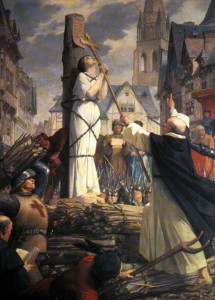 prison, she received Holy Communion for the last time and was immediately led to her torture in the Old Market Square. She asked one of the priests to hold up a processional Cross in front of the stake. Thus she died, her gaze fixed upon the Crucified Jesus and crying out several times the Name of Jesus (PNul, I, p. 457; cf. Catechism of the Catholic Church, n. 435). About 25 years later the Trial of Nullity, which opened under the authority of Pope Calixtus III, ended with a solemn sentence that declared the condemnation null and void (7 July 1456; PNul, II, pp. 604-610). This long trial, which collected the evidence of witnesses and the opinions of many theologians, all favourable to Joan, sheds light on her innocence and on her perfect fidelity to the Church. Joan of Arc was subsequently canonized by Benedict XV in 1920. Dear brothers and sisters, the Name of Jesus, invoked by our Saint until the very last moments of her earthly life was like the continuous breathing of her soul, like the beating of her heart, the centre of her whole life. The Mystery of the Charity of Joan of Arc which so fascinated the poet Charles Péguy was this total love for Jesus and for her neighbour in Jesus and for Jesus. This Saint had understood that Love embraces the whole of the reality of God and of the human being, of Heaven and of earth, of the Church and of the world. Jesus always had pride of place in her life, in accordance to her beautiful affirmation: “We must serve God first†(PCon, I, p. 288; cf. Catechismo della Chiesa Cattolica, n. 223). Loving him means always doing his will. She declared with total surrendur and trust: “I entrust myself to God my Creator, I love him with my whole my heart†(PCon, I, p. 337). With the vow of virginity, Joan consecrated her whole being exclusively to the one Love of Jesus: “it was the promise that she made to Our Lord to preserve the virginity of her body and her mind well†(PCon, I, pp. 149-150). Virginity of soul is the state of grace, a supreme value, for her more precious than life. It is a gift of God which is to be received and preserved with humility and trust. One of the best known texts of the first Trial concerns precisely this: “Asked if she knew that she was in God’s grace, she replied: ‘If I am not, may it please God to put me in it; if I am, may it please God to keep me there’†(ibid., p. 62; cf. Catechism of the Catholic Church, n. 2005).
prison, she received Holy Communion for the last time and was immediately led to her torture in the Old Market Square. She asked one of the priests to hold up a processional Cross in front of the stake. Thus she died, her gaze fixed upon the Crucified Jesus and crying out several times the Name of Jesus (PNul, I, p. 457; cf. Catechism of the Catholic Church, n. 435). About 25 years later the Trial of Nullity, which opened under the authority of Pope Calixtus III, ended with a solemn sentence that declared the condemnation null and void (7 July 1456; PNul, II, pp. 604-610). This long trial, which collected the evidence of witnesses and the opinions of many theologians, all favourable to Joan, sheds light on her innocence and on her perfect fidelity to the Church. Joan of Arc was subsequently canonized by Benedict XV in 1920. Dear brothers and sisters, the Name of Jesus, invoked by our Saint until the very last moments of her earthly life was like the continuous breathing of her soul, like the beating of her heart, the centre of her whole life. The Mystery of the Charity of Joan of Arc which so fascinated the poet Charles Péguy was this total love for Jesus and for her neighbour in Jesus and for Jesus. This Saint had understood that Love embraces the whole of the reality of God and of the human being, of Heaven and of earth, of the Church and of the world. Jesus always had pride of place in her life, in accordance to her beautiful affirmation: “We must serve God first†(PCon, I, p. 288; cf. Catechismo della Chiesa Cattolica, n. 223). Loving him means always doing his will. She declared with total surrendur and trust: “I entrust myself to God my Creator, I love him with my whole my heart†(PCon, I, p. 337). With the vow of virginity, Joan consecrated her whole being exclusively to the one Love of Jesus: “it was the promise that she made to Our Lord to preserve the virginity of her body and her mind well†(PCon, I, pp. 149-150). Virginity of soul is the state of grace, a supreme value, for her more precious than life. It is a gift of God which is to be received and preserved with humility and trust. One of the best known texts of the first Trial concerns precisely this: “Asked if she knew that she was in God’s grace, she replied: ‘If I am not, may it please God to put me in it; if I am, may it please God to keep me there’†(ibid., p. 62; cf. Catechism of the Catholic Church, n. 2005).
Our Saint lived prayer in the form of a continuous dialogue with the Lord who also illuminated her dialogue with the judges and gave her peace and security. She asked him with trust: Sweetest God, in honour of your holy Passion, I ask you, if you love me, to show me how I must answer these men of the Church†(PCon, I, p. 252). Joan saw Jesus as the “King of Heaven and of the earthâ€. She therefore had painted on her standard the image of “Our Lord holding the world†(ibid., p. 172): the emblem of her political mission. The liberation of her people was a work of human justice which Joan carried out in charity, for love of Jesus. Her holiness is a beautiful example for lay people engaged in politics, especially in the most difficult situations. Faith is the light that guides every decision, as a century later another great Saint, the Englishman Thomas More, was to testify.
In Jesus Joan contemplated the whole reality of the Church, the “Church triumphant†of Heaven, as well as the “Church militant†on earth. According to her words, “About Jesus Christ and the Church, I simply know they’re just one thing†(ibid., p. 166). This affirmation, cited in theCatechism of the Catholic Church (n. 795), has a truly heroic character in the context of theTrial of Condemnation, before her judges, men of the Church who were persecuting and condemning her. In the Love of Jesus Joan found the strength to love the Church to the very end, even at the moment she was sentenced. I like to recall that St Joan of Arc had a profound influence on a young Saint of the modern age: Thérèse of the Child Jesus. In the context of a completely different life, spent in the cloister, the Carmelite of Lisieux felt very close to Joan, living in the heart of the Church and participating in Christ’s suffering for the world’s salvation. The Church has brought them together as Patronesses of France, after the Virgin Mary. St Thérèse expressed her desire to die, like Joan, with the Name of Jesus on her lips (Manoscritto B, 3r), and she was motivated by the same great love for Jesus and her neighbour, lived in consecrated virginity. Dear brothers and sisters, with her luminous witness St Joan of Arc invites us to a high standard of Christian living: to make prayer the guiding motive of our days; to have full trust in doing God’s will, whatever it may be; to live charity without favouritism, without limits and drawing, like her, from the Love of Jesus a profound love for the Church. Thank you.
Tags: catholic, catholic church, catholic podcast, catholic prayer, cathollc spirituality, Crucified Jesus, French Saint, Joan of Arc
This entry was posted on Wednesday, January 19th, 2011 at 12:12 am
You can follow any responses to this entry through the RSS 2.0 feed.
Six Insights from the Life of Dorothy Day from Province of Saint Joseph on Vimeo.
6 Insights from the Life of Dorothy Day –
(from Our Sunday Visitor)
“Dorothy Day is one of the most significant women in the life of the Church in the United States.” That’s how Archbishop Timothy Dolan of New York began a moving and inspiring talk about the founder of the Catholic Worker Movement on the anniversary of her birthday Nov. 9 at St. Joseph’s Church in Greenwich Village. The video clip above is worth watching to the end. I had tears in my eyes by the time it was over, but I’ll give you the synopsis of what Archbishop Dolan labeled the six “insights” we can take from Dorothy Day.
1. “She was quintessentially American.” The archbishop went on to emphasize that Dorothy’s faith was freely chosen. She was raised Protestant and converted to Catholicism. Her faith was “her free choice,” something Archbishop Dolan said should resonate particularly well with Americans who more and more reject the faith of their births.
2. “Dorothy was from the beginning a social critic and activist in the best prophetic sense of American Christian spirituality, whether Protestant, Catholic, or Orthodox.” The archbishop said that Dorothys’ vision and her intellectual c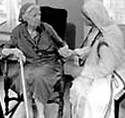 ontributions may well have “foreshadowed” what Pope John XXIII, Vatican II, and Pope John Paul II tried to advance “relative to the dignity of each person as a worker, as a human being created in the image and likeness of God.”
ontributions may well have “foreshadowed” what Pope John XXIII, Vatican II, and Pope John Paul II tried to advance “relative to the dignity of each person as a worker, as a human being created in the image and likeness of God.”
3. “Dorothy’s mission to the Church in every area — social and legal reform, workers’ rights, publications, her renowned pacifism, the ability to prophetically challenge even Church authority — all of that found its taproot in prayer,” something the archbishop said is too often reversed by reform-minded leaders. He stressed that Dorothy began and ended each day with prayer and rarely missed daily Mass, adding, “Her activism was the fruit of a profound prayer that I would say bordered on the mystic.”

4. “Dorothy lived through two experiences of her day that are particularly enlightening for us today. Experience one: loneliness, alienation and disconnection to foundational institutions such as marriage and family. Secondly, the sexual revolution…” Archbishop Dolan called her life one of “upheaval,” but said that her Augustinian model of faith reminds us that our sexuality cannot be cast aside as a weakness but is integral to our lives as an expression of our likeness to God. “She invites us to watch her grow in integrity in this most precious act of being human,” he said.
5. “Dorothy neither hid from sin nor would allow any person, no matter their motives, to be simply equated with the sum of their sins. We are not ever or only the sum total of our sins, are we?” The archbishop said that Dorothy’s life was “ever in process” and she was ever more converted to Jesus Christ every day. “Holiness of life, Dorothy would tell us, would have no chance without honesty at its base,” he said, stressing that we cannot deny or lawyer up when it comes to our mistakes.
6. “Dorothy was a woman of the Church. She loved being a Catholic. She loved the Catholic Church. I’m not talking about some nebulous, generic Church. She loved the one, holy, catholic, apostolic, Roman church…She was proud to be Catholic.”
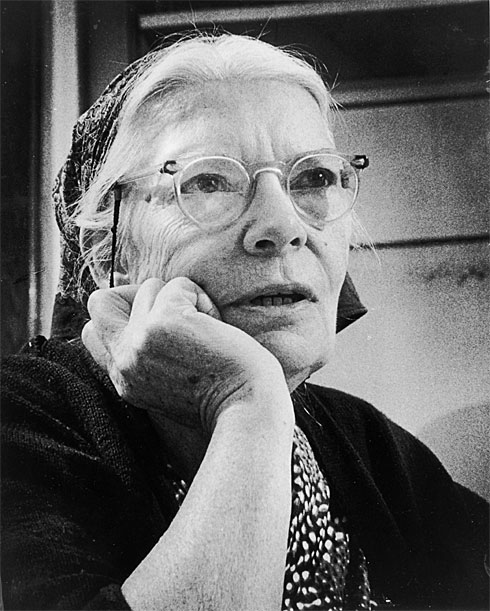 Finally, Archbishop Dolan went on to say that our greatest pastoral challenge as Catholics today is to “respond to those who want Christ without his Church, and their name is legion.” Saying that many people don’t have a problem with Jesus but have “tons of problems” with his Church, he pointed out that Dorothy knew full well the flaws of her Church and loved it anyway:
Finally, Archbishop Dolan went on to say that our greatest pastoral challenge as Catholics today is to “respond to those who want Christ without his Church, and their name is legion.” Saying that many people don’t have a problem with Jesus but have “tons of problems” with his Church, he pointed out that Dorothy knew full well the flaws of her Church and loved it anyway:
“She loved the mystical body, but she new the mystical body had warts galore…Here’s one of her saltier quotes, and there were many: ‘Yes, the Church is the spotless bride of Christ, but at other times, she’s the whore of Babylon.’ Dorothy was well aware of the flaws, the wounds, the imperfections, the ugly side of the Church, but she loved it all the more.” Our Sunday Visitor
Tags: archbishop dolan, catholic, catholic church, catholic podcast, catholic prayer, cathollc spirituality, Church, dorothy day, prayer, women
This entry was posted on Saturday, November 13th, 2010 at 8:55 am
You can follow any responses to this entry through the RSS 2.0 feed.
Episode 5 – Saints in Heaven – The Stones Cry Out
Roots of the Faith – From the Church Fathers to You with Mike Aquilina,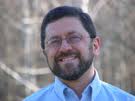 makes clear that just as an acorn grows into a tree and yet remains the same plant, so the Catholic Church is a living organism that has grown from the faith of the earliest Christians into the body of Christ we know today. Hosted by Kris McGregor
makes clear that just as an acorn grows into a tree and yet remains the same plant, so the Catholic Church is a living organism that has grown from the faith of the earliest Christians into the body of Christ we know today. Hosted by Kris McGregor
[powerpress]
Also visit Mike’s “Discerning Hearts†page for more audio downloads and information!
Tags: audio, catholic, catholic church, catholic podcast, catholic prayer, cathollc spirituality, church fathers, downloads, faith, fathers of the church, mike aquilina, saints, servant books, st. paul center for biblical theology
This entry was posted on Monday, October 25th, 2010 at 3:25 pm
You can follow any responses to this entry through the RSS 2.0 feed.
Episode 4 – From the Scriptures to the Bible
Roots of the Faith – From the Church Fathers to You with Mike Aquilina, makes clear that just as an acorn grows into a tree and yet remains the same plant, so the Catholic Church is a living organism that has grown from the faith of the earliest Christians into the body of Christ we know today. Hosted by Kris McGregor
makes clear that just as an acorn grows into a tree and yet remains the same plant, so the Catholic Church is a living organism that has grown from the faith of the earliest Christians into the body of Christ we know today. Hosted by Kris McGregor
[powerpress]
Also visit Mike’s “Discerning Hearts†page for more audio downloads and information!
Tags: body of christ, catholic, catholic church, catholic podcast, catholic prayer, cathollc spirituality, church fathers, mike aquilina
This entry was posted on Sunday, October 17th, 2010 at 3:58 pm
You can follow any responses to this entry through the RSS 2.0 feed.
“Supremacy and Survival: How Catholics Endured the English Reformation” is an outstanding introduction to the persecution of Catholics began in 16th century England. Lasting over 250 years, the effects can still be felt in some ways even in today’s world. But through the witness of great saints such as St. Thomas More and St. John Fisher to Blessed John Henry Newman, Catholics in England, as well as throughout the rest of the world, have been encouraged and inspired to continue standing for the truths found in the Catholic Church, which ultimately reflect the great Truth, who is Our Lord and Savior Jesus Christ. Stephanie Mann does a beautiful job of presenting this period and many of those heroic lives in her work.
outstanding introduction to the persecution of Catholics began in 16th century England. Lasting over 250 years, the effects can still be felt in some ways even in today’s world. But through the witness of great saints such as St. Thomas More and St. John Fisher to Blessed John Henry Newman, Catholics in England, as well as throughout the rest of the world, have been encouraged and inspired to continue standing for the truths found in the Catholic Church, which ultimately reflect the great Truth, who is Our Lord and Savior Jesus Christ. Stephanie Mann does a beautiful job of presenting this period and many of those heroic lives in her work.
To learn more visit Stephanie Mann’s website
[powerpress]
Tags: 16th century, catholic, catholic church, catholic podcast, catholic prayer, cathollc spirituality, england, english reformation, John Fisher, john henry newman, st john fisher, st thomas more, Stephanie Mann, work
This entry was posted on Tuesday, October 12th, 2010 at 4:14 am
You can follow any responses to this entry through the RSS 2.0 feed.
Episode 3 – Confession: the history of mercy
Roots of the Faith – From the Church Fathers to You with Mike Aquilina, makes clear that just as an acorn grows into a tree and yet remains the same plant, so the Catholic Church is a living organism that has grown from the faith of the earliest Christians into the body of Christ we know today. Hosted by Kris McGregor
makes clear that just as an acorn grows into a tree and yet remains the same plant, so the Catholic Church is a living organism that has grown from the faith of the earliest Christians into the body of Christ we know today. Hosted by Kris McGregor
[powerpress]
Also visit Mike’s “Discerning Hearts†page for more audio downloads and information!
Tags: catholic, catholic church, catholic podcast, catholic prayer, cathollc spirituality, church fathers, confession, downloads, mike aquilina
This entry was posted on Saturday, October 2nd, 2010 at 9:53 pm
You can follow any responses to this entry through the RSS 2.0 feed.

